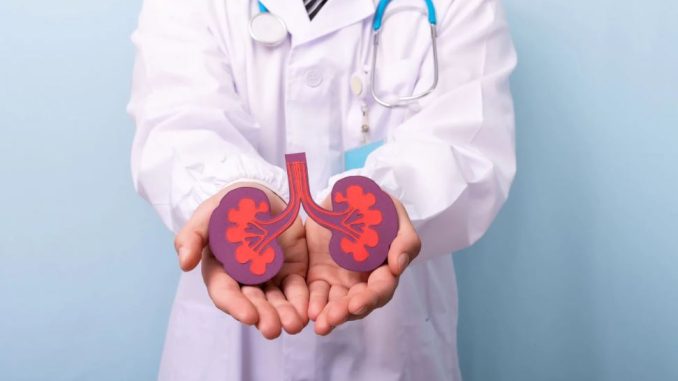
The kidneys are remarkable organs with essential roles in maintaining your overall health. They filter waste products, regulate blood pressure, balance electrolytes, and produce hormones critical for red blood cell production and bone health. However, kidney failure, a condition where the kidneys lose their ability to function adequately, can occur silently and progress slowly. Recognizing warning signs of kidney failure is vital for early detection and intervention. In this article, we’ll explore four critical signs that your kidneys may need attention.
1. Changes in Urination:
One of the earliest and most noticeable signs of kidney problems is changes in urination patterns. Pay attention to the following:
- Increased Urination: If you find yourself needing to urinate more frequently, especially at night (a condition called nocturia), it could be a sign that your kidneys are not efficiently concentrating urine.
- Decreased Urination: Conversely, a significant decrease in urination or difficulty in passing urine can indicate a kidney issue. This could be due to a blockage or kidney damage.
- Urine Color and Odor: Abnormal urine color (dark, foamy, or bloody) or a persistent foul odor may be signs of kidney trouble. Healthy urine is typically pale yellow and odorless.
2. Swelling (Edema):
Kidneys play a vital role in maintaining fluid balance in the body. When they are not functioning correctly, excess fluid can accumulate, leading to swelling in various parts of the body. Common areas for edema due to kidney issues include:
- Legs and Ankles: Swelling in the lower extremities is a classic sign of fluid retention associated with kidney problems.
- Face and Eyes: Kidney-related edema can also cause puffiness in the face and around the eyes.
- Abdomen: In some cases, fluid buildup can lead to abdominal swelling and discomfort.
3. Fatigue and Weakness:
Kidney failure can lead to a buildup of waste products and toxins in the bloodstream, a condition known as uremia. This can cause a range of symptoms, including fatigue and weakness. People with kidney problems often describe feeling unusually tired, even after a good night’s sleep. Persistent weakness should prompt a visit to a healthcare professional for evaluation.
4. High Blood Pressure:
The kidneys play a crucial role in regulating blood pressure by controlling the volume of blood and the balance of sodium and potassium. When the kidneys are not functioning properly, they may contribute to high blood pressure (hypertension). Conversely, untreated hypertension can also harm the kidneys, creating a dangerous cycle.
Risk Factors for Kidney Failure: Understanding the risk factors for kidney failure can help you assess your likelihood of developing kidney problems. Common risk factors include:
- Diabetes: People with diabetes are at an increased risk of kidney disease, as high blood sugar levels can damage the kidneys over time.
- High Blood Pressure: Hypertension can damage blood vessels in the kidneys and is a leading cause of kidney failure.
- Family History: A family history of kidney disease may increase your risk.
- Age: As you age, the risk of kidney problems generally increases.
- Smoking: Smoking can damage blood vessels and worsen kidney function.
- Obesity: Excess body weight can strain the kidneys and increase the risk of kidney disease.
- Certain Medications: Some medications, especially when used long-term or at high doses, can harm the kidneys.
What to Do if You Notice Warning Signs: If you experience any of the warning signs mentioned above, it’s crucial to seek medical attention promptly. Early detection and intervention can help slow or manage the progression of kidney disease. A healthcare professional can perform diagnostic tests, such as blood tests, urine tests, and imaging studies, to assess your kidney function and identify any underlying causes.
Preventing Kidney Problems: Preventing kidney problems starts with maintaining a healthy lifestyle and managing underlying health conditions:
- Stay Hydrated: Drink plenty of water to help flush toxins and waste products from your body.
- Control Blood Pressure: Manage hypertension through diet, exercise, and medications as prescribed by your healthcare provider.
- Manage Diabetes: If you have diabetes, monitor your blood sugar levels and follow your treatment plan.
- Maintain a Healthy Weight: Achieve and maintain a healthy weight through diet and exercise.
- Limit Sodium Intake: Reduce your sodium intake to help control blood pressure and reduce the strain on your kidneys.
- Avoid Smoking and Limit Alcohol: Smoking and excessive alcohol consumption can harm your kidneys, so it’s best to quit smoking and drink alcohol in moderation.
In conclusion, recognizing the warning signs of kidney failure is crucial for early detection and intervention. If you experience changes in urination, swelling, fatigue, or high blood pressure, consult a healthcare professional for a thorough evaluation. By addressing kidney issues promptly and managing risk factors, you can help maintain your kidney health and overall well-being.
Share this:
- Click to share on Facebook (Opens in new window)
- Click to share on Twitter (Opens in new window)
- Click to share on WhatsApp (Opens in new window)
- Click to share on Reddit (Opens in new window)
- Click to share on Telegram (Opens in new window)
- Click to share on Pinterest (Opens in new window)
- Click to share on LinkedIn (Opens in new window)